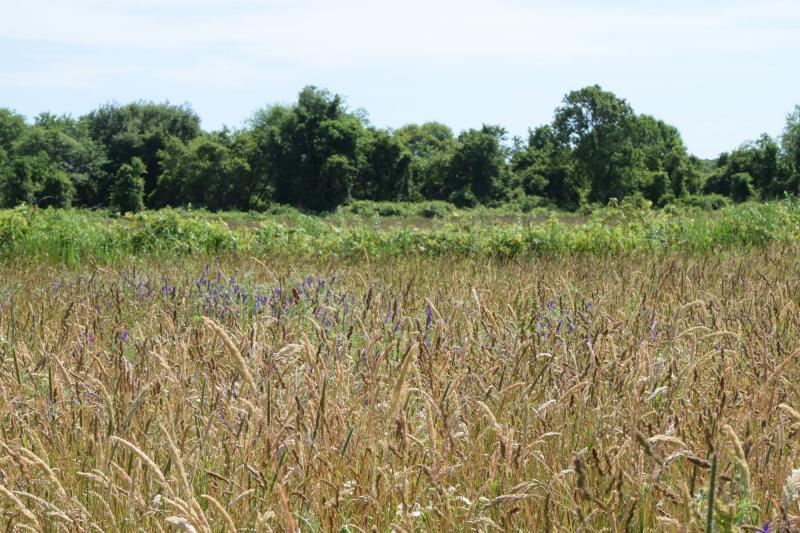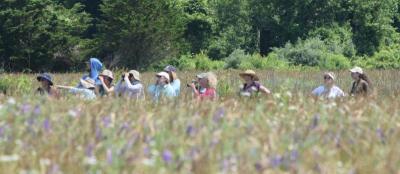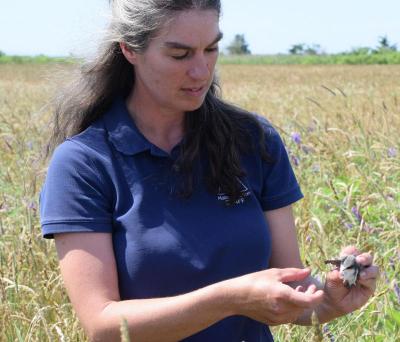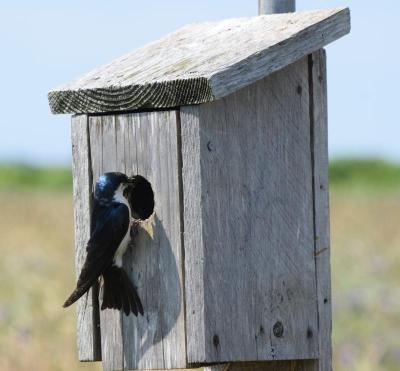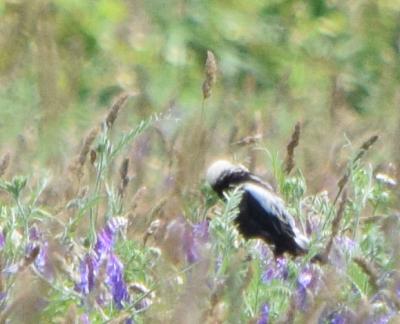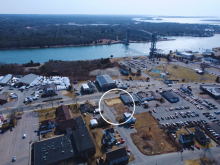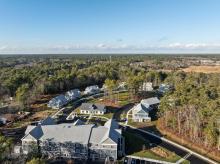“Bobolink Breakfast” highlights restoration work around Allens Pond
A partnership between several Dartmouth nonprofits is doing more than protecting Allens Pond: It’s restoring rare birds like bobolinks to the South Coast.
On June 30, Round the Bend Farm and Mass Audubon’s Allens Pond Wildlife Sanctuary held a special “Bobolink Breakfast” at the 92 Allen’s Neck Road property to celebrate the success the two organizations and have had bringing the birds back to the region.
After a breakfast featuring food grown on site and at local farms, staff from both organizations led a hike down into restored grasslands in search of bobolinks.
It’s a mission that traces back to when Mass Audubon first began its quest to preserve and restore Allens Pond in the early 2000s.
Bobolinks — named after a loose interpretation of the male bird's characteristic mating song — were a common sight in grasslands and meadows across the northeast. The birds flocked to the coastal areas during mating season from June to mid-July.
A loss of prime grassland in recent decades resulted in a sharp decline in populations. But work in adaptive management and collaboration have brought the birds back.
Mass Audubon stepped in to focus on restoring the grassland. In the process, they made a critical shift to warm season grass, which grow over the summer and are harvested in the early fall.
“Mass Audubon decided to use warm season grasses, which is very very challenging to grow in this environment,” explained Allens Pond Wildlife Sanctuary Land Manager Lauren Miller-Donnelly.
It took several years of restoration, along with clearing vegetation and invasive species from the property, to attract the first, single group of bobolinks in 2007. That number has since grown to 20 bobolinks.
Round the Bend Farm adopted a hay harvesting and grazing schedule to help protect the bobolink population.
“Collaboration is absolutely intrinsic in how to create a restorative community,” said Round the Bend Farm Executive Director Desa Van Laarhoven. “We can’t do any of these daunting things — work on climate change, work on resource scarcity, without each other.”
Farm Manager Geoff Kinder waits for Miller-Donnelly to give the all clear to start harvesting the hay, cutting the grass, and bringing his grazing farm animals out to graze on the property in the fall.
It has both the added benefits of keeping the grass short enough to allow Kinder to keep track of new calves typically born in the early fall, and coincides with his harvesting schedule.
“Timing is everything,” Kinder noted
Miller-Donnelly noted there is still work to be done to restore bobolink habitats elsewhere in the region. An important behavior of bobolinks is they will prefer to search for a mate in the same general area, but not the same grassy field.



